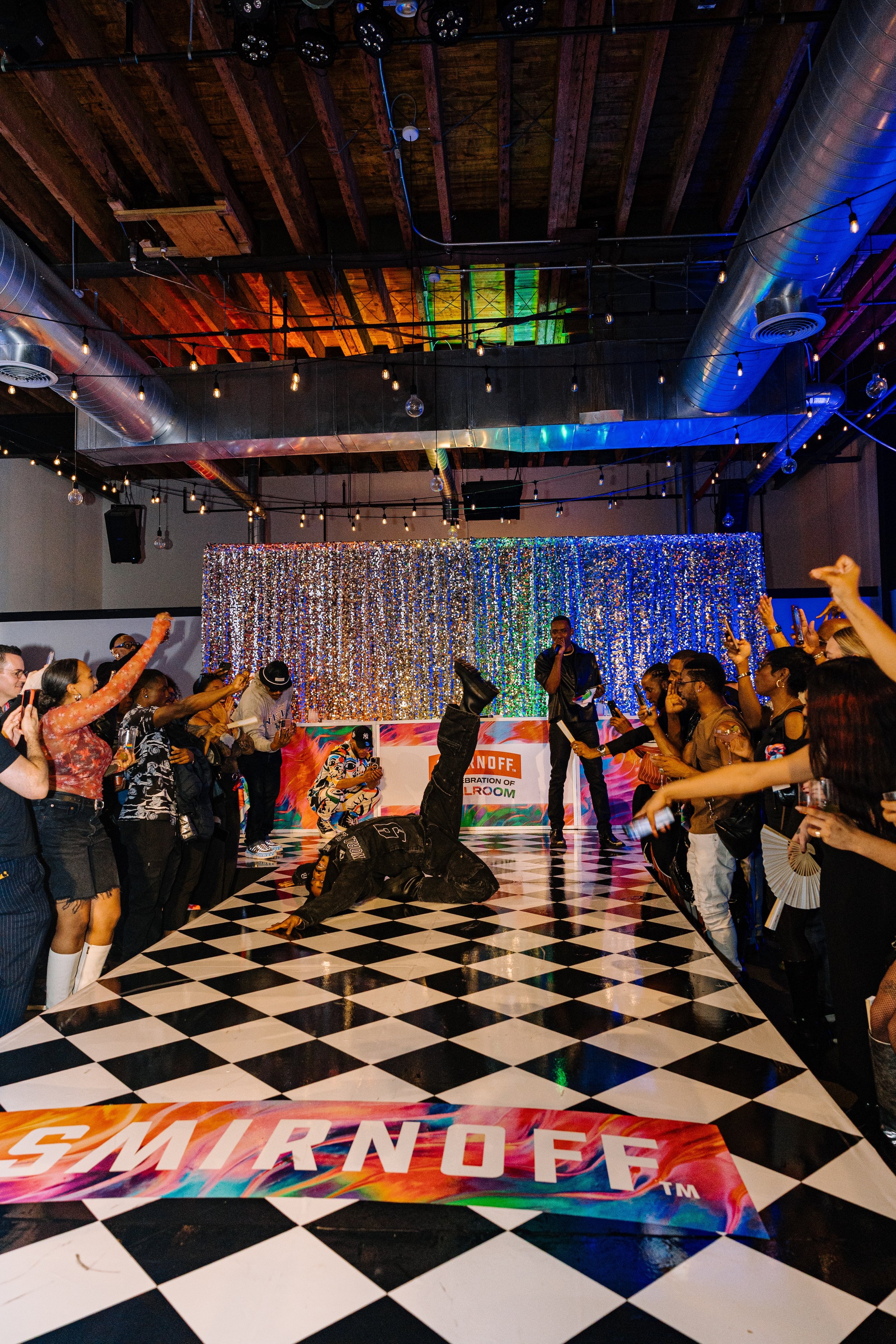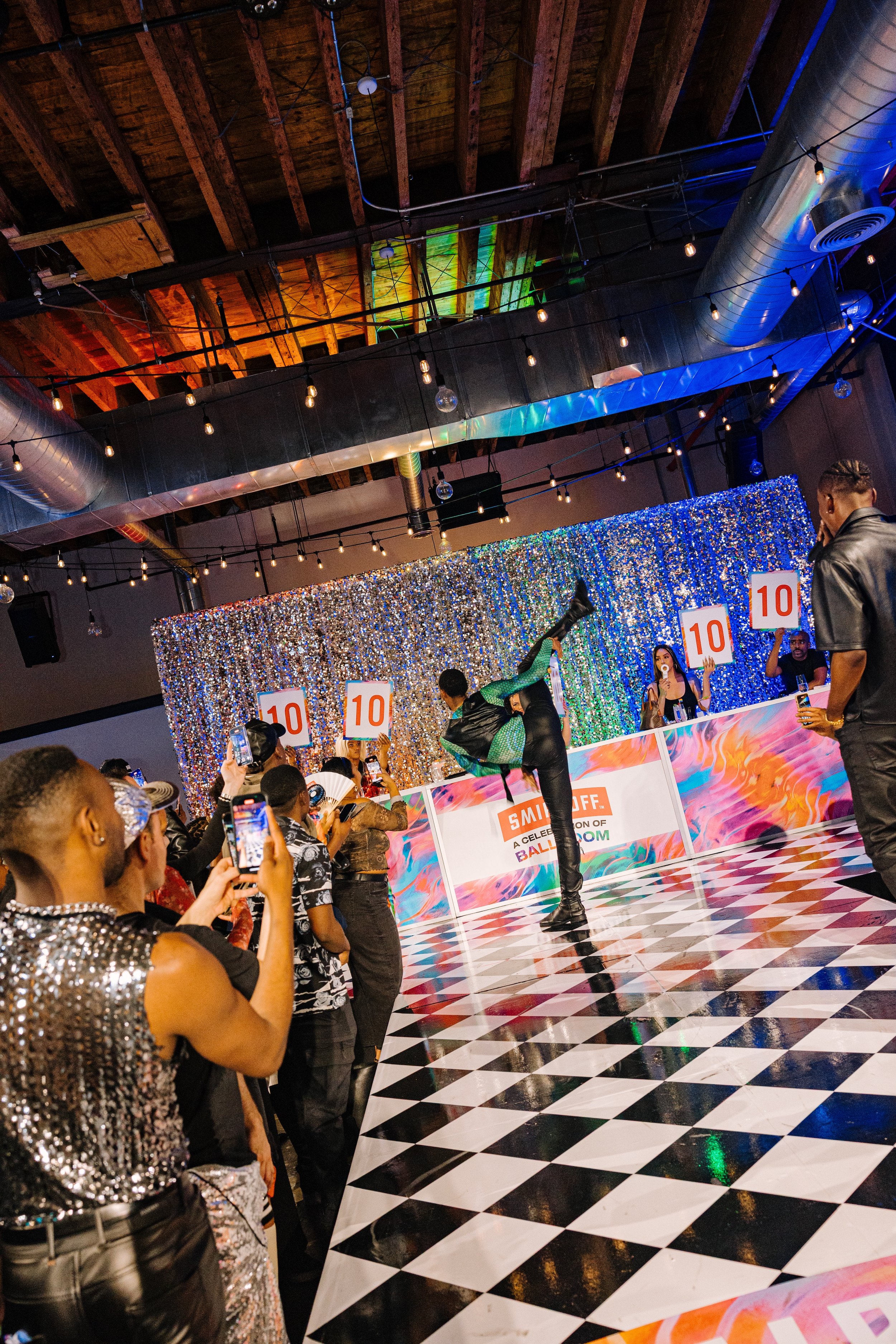DaShaun Wesley is the King of Voguing
He has established himself as a mainstay in the Ballroom scene.
Photography by Loamis Rodriguez
There’s no doubt Dashaun Wesley is a legend in the making. As a dancer, choreographer, advocate, MC, and actor, the Brooklyn native and student of New York’s underground Ballroom scene, Dashaun Wesley, has become an icon in the LGBTQIA+ community and beyond.
With appearances on television’s America's Best Dance Crew and Pose and a successful run as host of HBO’s voguing competition series, Legendary, Wesley has established himself as a mainstay in the Ballroom scene. After years of teaching, uplifting and mentoring others, the King of Vogue continues to lead and inspire a new generation to embrace and protect their right to celebrate life on and off the dance floor.
Wesley spoke to 1202 MAGAZINE about his dance career, what voguing and ballroom mean to him and the LGBTQIA+ community, his “Celebration of Ballroom” Pride event in collaboration with Smirnoff, and how his passions blossomed into a multifaceted career.
This interview has been edited for length and clarity.
You started dancing when you were 14 years old, and now you’re recognized as the ‘King of Vogue.’ Did you expect to become the icon that you are now, or was that something you worked towards? Or did it just happen?
Many years ago, before this Ballroom space was as public as it is now, it was so underground. I didn’t know it was gonna get here. I knew it was gonna get somewhere, because I always had the energy that this style or this movement was going to grow into something. When I was 14, I didn’t know where it was going to grow, but I always knew that, with whatever I had the passion to do, I just stuck to it, and it was going to be somewhere.
And I always say that the community gave that tagline to me as the ‘King of Vogue.’ I just took it on because, baby, once I knew I could travel the world and began to do so, I was making sure that people knew what it was to speak the language of Vogue in the essence of the community. So it grew on me.
How do you feel about the Ballroom space growing, and the growing number of people who are not necessarily a part of the LGBTQIA+ community embracing Ballroom?
I do remember the times when there were spaces that didn't have Vogue classes at all. I guess I support the space of it growing, but I also say that it gave [Ballroom dancers] a responsibility. We were growing from an underground space to a public space, to now taking full ownership of what we have, because we know how easily it could be taken away or misinterpreted.
Now, of course, I can say that there are people today who like the style but don’t want to be part of the whole Ballroom community. You know, they don’t want to compete. And I’ve run into many folks who are in the community who really don’t like the competing part, so it becomes really difficult sometimes, because you have someone who has the heart and passion for the style, but doesn’t want to compete.
We try to tell everybody that there’s a competing aspect to it that you might not like, but there’s also the family aspect that will help you get the information about the history that we have, so you can continue to do what you do. That’s what we try to teach the most.


Photography by Loamis Rodriguez
Do you feel there is a responsibility for allies or people who are not in the community to be mindful and make sure that they don’t take over the Ballroom scene, which is a safe space for so many of those in the LGBTQIA+ community?
The community doesn’t have a problem letting anyone know when something doesn’t feel right. What I do love about my community is that we are creatives in our spaces. Even when we don’t know we’re creating something, we’re creating. So, when we see something in public that doesn’t recognize us or even give us the celebratory moments, we like to pull up and speak publicly about it, and we make sure that gets handled the correct way.
So, yes, it is our allies’ responsibility to make sure, if you’re going to acknowledge us, acknowledge it the right way. I can say for the past 10 years, that’s been happening lately with us stepping up to make sure that people do it correctly.
Why do you think that it’s so important to continue keeping everyone aware of Ballroom history, vocabulary, and culture?
It’s always going to be important because I am standing on the shoulders of those who’ve been doing this before me. There are folks who didn’t have the opportunity to speak in spaces that exist today. The most that we can go back to are movies, videos, or documentaries that explain our culture in a time when they didn’t have too much access to cameras. So, you’re able to see The Queen or Paris is Burning, and you’re able to see how our community has come together and created the culture that exists today.
We’re not a small community, so there are a lot of iconic legends, pioneers, even stars of status, who contribute to this community internally and also publicly, to make sure everybody is acknowledged in the space the right way. There’s a lot of work that has to be done with us, including myself, still to this day.
Speaking of acknowledgement, can you talk a little bit about Smirnoff’s ‘A Celebration of Pride’ event and what that felt like for you, coming from this underground Ballroom scene to being able to express so loudly and so publicly with so many people?
I’m always open to helping my community in many different ways. To partner with Smirnoff and put a celebration of Ballroom together was pretty cool. It was fun. I think the best part about it is giving the opportunity to members of my community in a space to perform publicly for others. Shout out to Parris Goebel, because she was our guest judge there as well.
It was awesome that Smirnoff was able to put this all together for Pride with us. That’s what it is when you have these communities and spaces as allies who are able to come in to allow us to be our original selves, because we can put on the show. We definitely can, and Smirnoff allowed everyone to do that, and they had a great time.
Do you have a message for the up-and-coming generation of Vogue and Ballroom dancers?
If you immerse yourself in this community and understand why the people do exactly what they do, then you’ll see how we influence many parts of the world, our community, and different spaces as well. Because not only are we dancers, but we have this realness thing that’s really difficult to talk about right now that we've been trying to figure out, but we also have these different talents and spaces that we can explore.
People come to our space to get ideas, so as long as you support the space and know the space that you are serving, you’ll know how to continue to make sure that we are getting the love and support, so we’re not being undervalued when it comes to our community.

